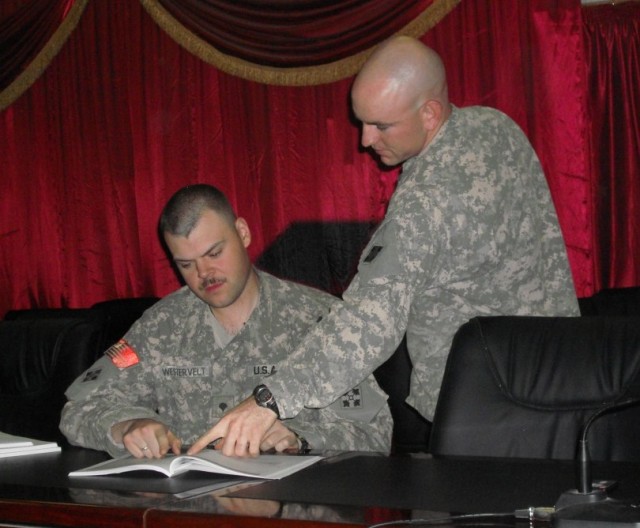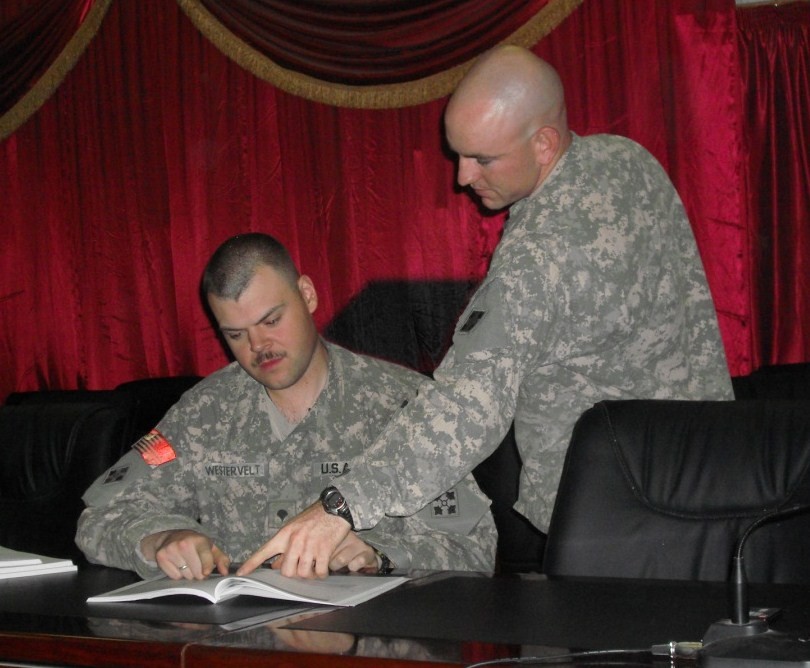
Peering into the Task Force Blackjack conference room on any given Tuesday, one might be surprised at what he or she hears.
On Tuesdays, Staff Sgt. John Meyer, the 4th Squadron, 10th Cavalry Regiment, 3rd Brigade Combat Team, 4th Infantry Division protective services detail platoon sergeant from Longmont, Colo., leads discussions on topics such as detecting "icebergs" and avoiding "thinking traps," as part of an Army-wide program called Master Resiliency Training.
Master Resiliency Training, a joint initiative between the U.S. Army and the University of Pennsylvania, provides Soldiers an opportunity to improve their well-being and develop their leadership potential.
While the training is a positive tool for helping Soldiers maintain balance and overcome adversity, it is not a special device used to avoid basic soldiering. Attention to detail, discipline, following orders, and performing tasks to standard are still a major part of daily TF Blackjack operations.
"A Soldier who displays substandard performance is still going to be disciplined by [his or her] leader," Meyer said during a group discussion. "How the leader goes about communicating with the Soldier and how the Soldier responds to the reprimand are the only things being worked on."
When Meyer first learned he was being sent to University of Pennsylvania for a master resiliency instructor class, he assumed it was some pilot physical training program.
One of the major topics in the MRT program is building mental toughness during difficult situations like a deployment.
"I had better respect for the material after using it to cope with the stress my wife was feeling from my being gone," Meyer said.
Soldiers learn about "The Velcro / Teflon Effect," which is the tendency to notice evidence that confirms preexisting thoughts and to miss evidence that contradicts those thoughts. The list of skills learned during resiliency training is vast, and each skill can be applied within TF Blackjack's current operation.
"They should maybe teach a condensed resiliency training class in basic [training] so that Soldiers have some kind of idea of what they're getting into and what to expect in the Army," Meyer said.
Master Resiliency Training is meant to be forward-learning as it works to solve problems long before they ever occur.
"Some of the Soldiers tell me that the modules are helping them deal with stress in their family or this deployment," said Meyer. "After class, other Soldiers come up to me and ask for further information on how to utilize the materials covered."
While most Soldiers appreciate the training, Meyer said some seasoned veterans frown upon the "New Army" and teaching them to adjust their thinking patterns can be very challenging.
"The hardest part of the resiliency training is being able to get the guys with the old school mentality to sit down and converse with Soldiers or be open-minded about the class and absorb some of the information to use for their own good," Meyer said.
Related Links:
The Official Danger Forward Website

Social Sharing